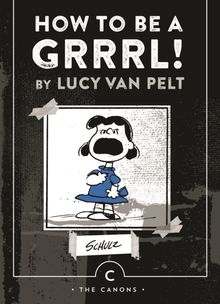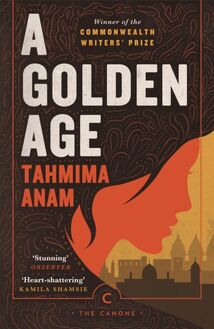Shipwrecks , livre ebook
90
pages
English
Ebooks
2009
Vous pourrez modifier la taille du texte de cet ouvrage
Obtenez un accès à la bibliothèque pour le consulter en ligne En savoir plus
Découvre YouScribe en t'inscrivant gratuitement
Découvre YouScribe en t'inscrivant gratuitement
90
pages
English
Ebooks
2009
Vous pourrez modifier la taille du texte de cet ouvrage
Obtenez un accès à la bibliothèque pour le consulter en ligne En savoir plus
Publié par
Date de parution
08 octobre 2009
Nombre de lectures
0
EAN13
9781847677228
Langue
English
Publié par
Date de parution
08 octobre 2009
Nombre de lectures
0
EAN13
9781847677228
Langue
English
Contents
Title Page Chapter One Chapter Two Chapter Three Chapter Four Chapter Five Chapter Six Chapter Seven Chapter Eight About the Author Copyright
Introduction by David Mitchell
A kira Yoshimura was born in Tokyo in 1927, the eighth child of a prosperous bedding manufacturer. The future novelist did not have a silver-spoon childhood, however, as the family home doubled up as a boarding house for company employees. Running this operation took up most of his mother’s time, though the youthful Yoshimura’s cheek-by-jowl exposure to ‘industrial Japan’ endow some of his novels with a knowledge of life in factories and offices that is more frequently associated with Japanese cinema than it is with Japanese literature. Yoshimura’s affinity with working-class realities may also be traceable to his boyhood fondness for yosei , a form of narrative comedy with its own neighbourhood theatres in Tokyo. Yosei was popular with the lower orders but frowned upon by the wartime authorities as a potentially subversive frivolity. His school education was plagued by pleurisy, though this same lung ailment may have saved Yoshimura from conscription into the Imperial Army as the Pacific War turned against Japan. His brother Hideo inculcated him with a love of modern literature, and a private tutor from T dai University guided him through the Japanese classics. Yoshimura later expressed a particular admiration for the work of future Nobel Laureate Yasunari Kawabata and writer Motojir Kajii, best known today for his poetry.
By 1946, both of Yoshimura’s parents were dead, and he entered a technical college with a view to a future in the family business. His heart doesn’t seem to have been in running factories, however, and only a year later he took the plunge and switched his studies to literature. Ongoing ill health exerted a staccato influence on his education, but in 1952 he was elected the head of the literary circle at his university. The circle’s mentor was Yukio Mishima, only two years Yoshimura’s senior but already feted in literary Tokyo as the wunderkind author of Confessions of a Mask . Another member of the circle was Setsuko Tsumura, whom Yoshimura married in 1953, and who had a long and successful career as a writer ahead of her. The first of Yoshimura’s novels to earn widespread attention was 1959 novel Tekk (Iron Bridge) , shortlisted for the prestigious Akutagawa Prize. In 1966 Hoshi e no Tabi (Journey to the Stars) won the Dazai Osamu Prize, and Yoshimura’s claim on the literary landscape was acknowledged. His work began to be adapted for TV, film and radio. During these years he also pioneered a new literary genre now known as senki bungaku : a kind of military/technical history where the author takes a single innovation such as the Zero bomber, and conducts interviews with its designers, engineers, assembly-line workers and crew. As well as being a ‘biography’ of a technological leap from conception to war-theatre, senki bungaku also explores the social contexts and the military-industrial nexus that facilitated the new weapon or design. Of the six published translations into English of Yoshimura’s (twenty plus) books, two – Zero Fighter and Battleship Music – belong to his senki bungaku category, and both have sold well into the six figures in Japan. Yoshimura stopped writing in this genre only in the 1980s when his supply of interviewees was dying out.
Conscientious research also informs Yoshimura’s historical fiction. Some, such as 1982’s Amerika Hikozo (published in English as Storm Rider ), about Japanese castaways who visited America during the 1850s, are so closely based on non-fiction as to read like a biography: fidelity to source material trumps novelistic imperatives. The guiding ethos behind Shipwrecks , however, is not This is exactly what happened , but This is how life was . Yoshimura’s meticulous eye for detail stays wide open – he even combed through diaries of Japan’s Edo period (1603–1868) to compile accurate weather logs for particular years – but in Shipwrecks the research is at the service of the storyteller, not the other way around. The narrator stays invisible and the novel’s cosmology is that of Isaku, a nine-year-old boy from a fishing village on an island somewhere in Japan. Toponyms do not appear. To Isaku, the village is simply ‘the village’ and the island is simply ‘the island’: nor would a person of his humble station know that he lives in a country called ‘Japan’ or ‘Nippon’, so this fact also goes unmentioned. Likewise, time is measured not by Western or Japanese calendars, to which illiterate fishermen of the period had no access, but by the natural phenomena by which the characters would have measured out their years: the arrival of octopus, saury and squid; blossom on trees, the reddening of leaves; rainbows, the appearance of eulalia grass and snow; periods of indenture, O-fune-sama s ‘visits’, and the passage of lives. The reader can sense Yoshimura’s ‘meta-research’ in which he researched which swathes of his own historical knowledge Isaku was in ignorance of, and what should therefore be omitted from the novel.
What remains is a stark portrait of a struggle for survival in a milieu where human life was cheap and easily lost to disease, accident or vengeful authorities. For Isaku and his fellow-villagers, death is in life at every turn; and for the reader, mortality is near, if not on, every page. Isaku is first encountered as he gathers timber from a shipwreck for the funeral pyre of ‘an old man, over fifty, named Kinzo.’ Kinzo had slipped while hunting octopus, damaged his back and so sealed his fate. ‘In a village flirting with starvation, an invalid would be written off as dead.’ During periods of abject poverty – that is, most of the time – the villagers are forced to indenture their children or themselves to a labour agent in the nearest village, over the mountains. Prior to the opening of the novel, Isaku’s father has resorted to this measure in order to feed his wife and four children. His final injunction to Isaku, now the oldest child in the house, and his mother was ‘Don’t let the children starve while I’m away.’ The command echoes through the narrative, and Isaku’s father’s three-year absence is the time frame within which Shipwrecks sits.
The villager s near-nihilistic state of misery is relieved only when merchant ships carrying rice, sugar and other luxuries are wrecked by storms on the reef near the village, whose inhabitants refer to the shipwrecks as O-fune-sama . While ‘fune’ is Japanese for ‘ship’, O-fune-sama has also evolved in village folklore into a female deity whose fickle munificence may be swayed by voodoo-like rituals. Practical measures as well as supernatural ones are taken to encourage this deity’s generosity and, like the fictitious ‘wreckers’ of Cornish legend, the villagers try to lure hapless vessels in trouble at sea onto the reef by keeping the fires under their salt-cauldrons burning throughout the night. On one hand, this is murder and theft, punishable by torture and death: on the other, everything that Isaku wishes for – that his siblings might stay alive, that his mother might soften and smile, that Tami, the girl Isaku dreams of marrying, might stay in the village – depends upon O-fune-sama heeding their prayers. The stakes could not be higher. An unswerving belief in reincarnation inoculates the villagers against the dread of death itself: ‘upon death a person’s spirit departed for a far-off place beyond the seas, but after a time it would return to the village, to take shelter in a woman s womb and come back in the form of an infant’. To be executed away from the village, however, would rob them of even this otherworldly consolation: ‘if [Isaku] were hauled away and killed in an unfamiliar place, he thought it unlikely that his spirit would reach the sanctuary for the dead souls from his village. No doubt his spirit would be doomed to a hell full of the souls of grim-faced strangers.’ Consequently, when O-fune-sama does deliver the goods, the village elder ensures the villagers go to trade with the neighbouring village as usual so as not to arouse local suspicions that their grinding poverty is in remission. One mistake could cost them not only their lives but their future lives, as well.
Shipwrecks is a rare breed of historical fiction in not relying upon plot for propulsion. Neither of the two archetypal plots – ‘A Hero Takes a Trip’ or ‘A Stranger Comes to Town’ – so often deployed by the genre really apply to this novel. Isaku does not embark on a journey into the wider world like his father, or numerous protagonists in numerous historical novels, such as Hasekura Rokuemon in Sh saku End s The Samurai . Nor do forces of epochal change enter the village and turn it upside down as in, say, Shimazaki T son’s magisterial novel of the Meiji Restoration, Before the Dawn . The plot of Shipwrecks is simply the story of Isaku’s foraging and fishing, the day-to-day concerns of the village – birth, marriage, death – and its occasional scandals, and the early stirrings of Isaku’s sexuality. The novel’s sole wholly unforeseeable event ushers in the end of the book and, in a sense, the end of Isaku’s curtailed boyhood. (This twist may be karmic retribution, or it may just be disastrous luck.) Unlike the historical tales of Juni’ichir Tanizaki or Ry nosuke Akutagawa, Shipwrecks eschews any glamorous whiff of the gothic: Yoshimura’s portrayal of the past is hardscrabble realism, all the way. The novel’s simplicity of plot and setting is reflected in its matter-of-fact, almanac-like style that heightens a sense of watching a forgotten but real life, and anaesthetises any sense of reading a story crafted by a novelist. Nor is the novel overly character-driven. Isaku is fully fleshed and realised, and his mother casts a long shadow over his life and the story














